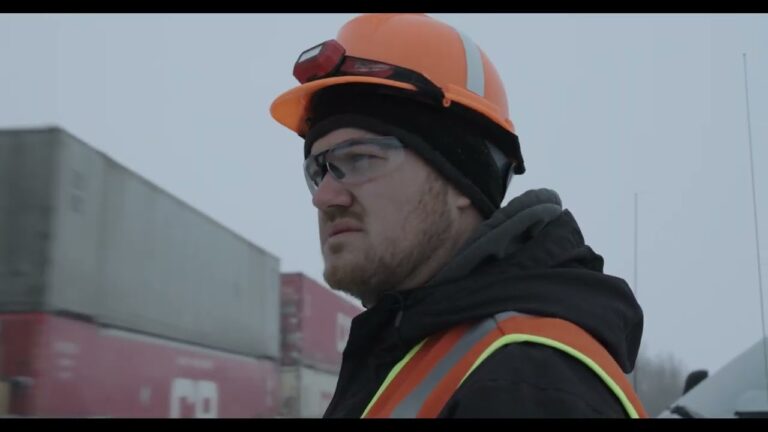Therapeutic Radiographer: Job Description and Salary
Therapeutic Radiographer Job Description: A therapeutic radiographer is a healthcare professional who specializes in the use of radiation therapy to treat patients with cancer. They work closely with oncologists, physicists, and other members of the healthcare team to develop and deliver radiation treatment plans. Their job involves operating complex medical equipment, such as linear accelerators, to deliver precise doses of radiation to specific areas of the body. They also provide emotional support to patients during their treatment and monitor their progress throughout the therapy process. Additionally, therapeutic radiographers play a crucial role in ensuring patient safety by following strict protocols and guidelines.
Therapeutic Radiographer Salary: The salary of a therapeutic radiographer can vary depending on factors such as experience, qualifications, and location. On average, a therapeutic radiographer can expect to earn a competitive salary, ranging from £25,000 to £45,000 per year in the United Kingdom. Entry-level radiographers usually start at a lower salary, while those with several years of experience or advanced qualifications can earn higher salaries. Additionally, working in private healthcare settings or in high-demand areas may offer higher salaries. Some radiographers may also receive additional benefits such as healthcare packages, pension schemes, and professional development opportunities. Overall, the salary of a therapeutic radiographer reflects the importance of their role in providing vital cancer treatment to patients.

Therapeutic Radiographer Job Description Template
Therapeutic Radiographer Job Description
A therapeutic radiographer is a healthcare professional who specializes in delivering radiation treatment to patients with cancer. They work closely with oncologists, radiation physicists, and other members of the healthcare team to ensure the safe and effective delivery of radiation therapy.
The main responsibilities of a therapeutic radiographer include:
1. Treatment Planning: Therapeutic radiographers are responsible for developing and implementing treatment plans for patients undergoing radiation therapy. This involves assessing the patient’s condition, reviewing medical images, and devising a customized treatment plan based on the physician’s prescription.
2. Radiation Delivery: Therapeutic radiographers operate advanced medical equipment to deliver radiation therapy to patients. They ensure that the equipment is properly calibrated and set up, and they monitor patients during treatment to ensure accurate delivery of radiation doses.
Other important duties of a therapeutic radiographer include:
– Educating patients about the radiation therapy process, potential side effects, and self-care measures.
– Assessing and managing patient’s side effects and providing appropriate support and advice.
– Collaborating with other healthcare professionals to ensure coordinated and patient-centered care.
– Maintaining accurate and detailed patient records.
– Adhering to radiation safety protocols and ensuring the safety of patients, staff, and visitors.
In addition to technical skills and knowledge of radiation therapy, therapeutic radiographers must possess excellent communication and interpersonal skills, as they work closely with patients who may be anxious or distressed. They should also have good problem-solving abilities and the ability to work well under pressure.
Overall, therapeutic radiographers play a vital role in the cancer treatment process, ensuring that patients receive the best possible care during their radiation therapy journey.
Therapeutic Radiographer Responsibilities
Therapeutic Radiographer Requirements
How Much Does A Therapeutic Radiographer Make?
Therapeutic Radiographer Salary
| Experience Level | Salary Range (per year) |
|---|---|
| Entry Level | $60,000 – $70,000 |
| Mid-Career | $70,000 – $85,000 |
| Experienced | $85,000 – $100,000 |
| Senior Level | $100,000+ |
Therapeutic Radiographers play a crucial role in cancer treatment, using radiation therapy to target and destroy cancer cells. In terms of salary, the earning potential for Therapeutic Radiographers varies based on their experience level.
Entry-level Therapeutic Radiographers can expect to earn between $60,000 and $70,000 per year. As they gain more experience and advance in their careers, their salaries can range from $70,000 to $85,000 for mid-career professionals. Experienced Therapeutic Radiographers can earn between $85,000 and $100,000 per year.
For those in senior-level positions, salaries can exceed $100,000 annually. It’s important to note that these figures may vary depending on factors such as geographical location, qualifications, and the healthcare facility in which one is employed.
Overall, Therapeutic Radiography offers competitive salaries, reflecting the importance and specialized skills required in this field.
Therapeutic Radiographer Salaries by Country
Top Paying Countries for Therapeutic Radiographer
| Country | Average Salary (USD) |
|---|---|
| United States | $85,560 |
| Australia | $83,260 |
| Switzerland | $81,230 |
| Canada | $74,970 |
| United Kingdom | $68,680 |
Therapeutic Radiographers are highly valued healthcare professionals who play a crucial role in the treatment of cancer patients. They use radiation therapy to target and treat tumors, working closely with oncologists and other medical professionals.
When it comes to salaries, the United States is the top paying country for Therapeutic Radiographers, with an average salary of $85,560. Australia and Switzerland also offer high salaries, with average earnings of $83,260 and $81,230 respectively. Canada and the United Kingdom round up the list of top paying countries, with average salaries of $74,970 and $68,680 respectively.
These figures indicate the importance placed on the role of Therapeutic Radiographers in these countries and reflect the demand for their specialized skills and expertise in cancer treatment.
A video on the topic Therapeutic Radiographer
Video Source : NHS Health Careers
Interview Questions for Therapeutic Radiographer
1. What is the role of a therapeutic radiographer?
A therapeutic radiographer is responsible for planning and delivering radiation treatment to patients with cancer or other diseases. They work closely with a medical team to determine the appropriate radiation dosage and treatment plan.
2. What skills are important for a therapeutic radiographer to possess?
Important skills for a therapeutic radiographer include excellent communication and interpersonal skills, as they frequently interact with patients who may be anxious or in pain. They must also have strong attention to detail and the ability to accurately position patients for treatment.
3. How do you ensure patient safety during radiation treatment?
To ensure patient safety, therapeutic radiographers carefully follow treatment plans and protocols, double-check dosage calculations, and use specialized equipment to accurately deliver radiation. They also monitor patients during treatment and address any side effects or complications.
4. How do you handle patient anxiety or fear during radiation treatment?
Therapeutic radiographers understand that patients may experience anxiety or fear during treatment. They provide emotional support, answer questions, and explain each step of the process to help alleviate anxiety. They also use techniques such as distraction or relaxation to help patients feel more comfortable.
5. What steps do you take to ensure accurate treatment delivery?
To ensure accurate treatment delivery, therapeutic radiographers carefully review treatment plans and verify patient information before each session. They use imaging techniques, such as CT scans, to precisely position patients and ensure the radiation is targeted to the correct area.
6. How do you handle difficult or challenging patients?
When dealing with difficult or challenging patients, therapeutic radiographers remain calm, patient, and empathetic. They try to understand the patient’s concerns and address them effectively. They may involve other members of the healthcare team, such as psychologists or social workers, if necessary.
7. How do you stay updated on the latest advancements in radiation therapy?
Therapeutic radiographers stay updated on the latest advancements in radiation therapy by attending conferences, workshops, and seminars. They also engage in continuous professional development and actively participate in research and clinical trials.
8. Can you explain the process of treatment planning in radiation therapy?
Treatment planning in radiation therapy involves various steps. It starts with gathering patient information, such as medical history and imaging scans. The therapeutic radiographer then collaborates with other healthcare professionals to determine the optimal treatment plan, including dosage and radiation techniques. The plan is then reviewed, approved, and implemented.
9. How do you ensure proper documentation and record-keeping?
To ensure proper documentation and record-keeping, therapeutic radiographers meticulously record treatment details, including dosage, positioning, and any side effects experienced by the patient. They maintain electronic or paper-based records and adhere to privacy and confidentiality regulations.
10. Can you describe a challenging situation you faced as a therapeutic radiographer and how you handled it?
One challenging situation I encountered was when a patient became extremely anxious and refused to undergo radiation treatment. I approached the patient with empathy, listened to their concerns, and addressed them one by one. I involved a psychologist to provide additional support and developed a personalized plan to gradually ease the patient’s anxiety. Eventually, the patient agreed to proceed with treatment, and we were able to complete the course successfully.






